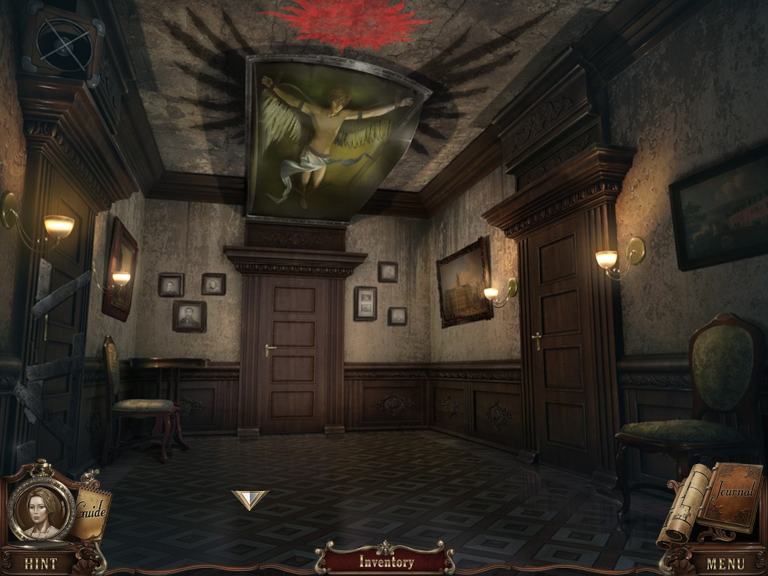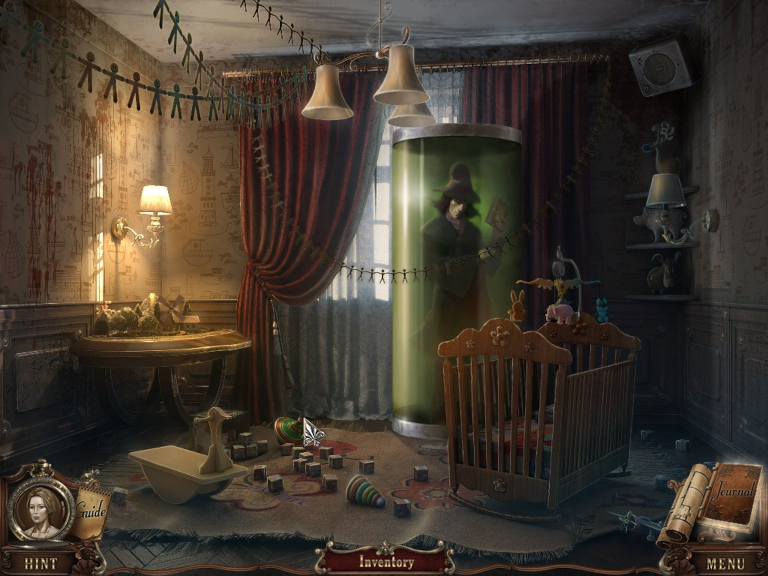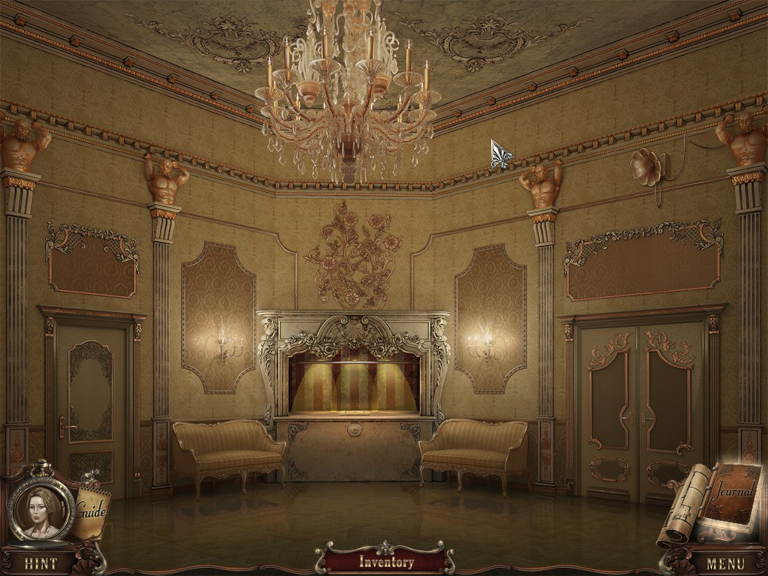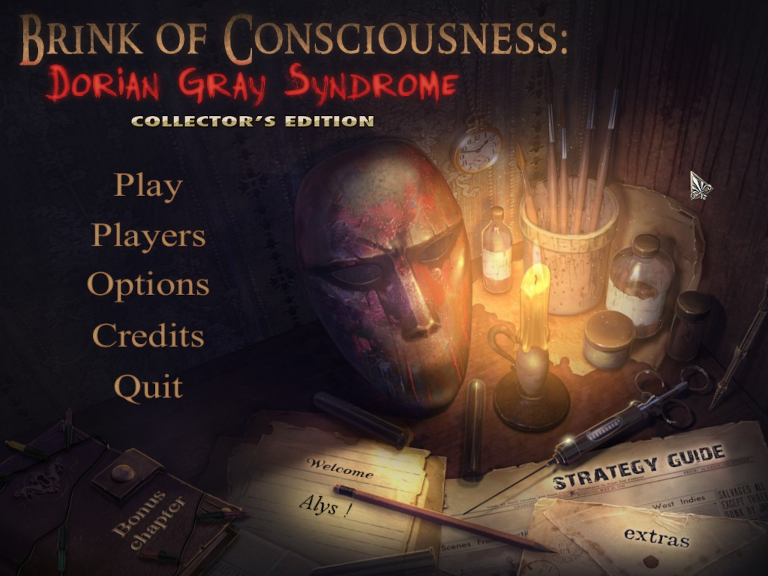|
Brink of Consciousness: Dorian Gray Syndrome (Collector's Edition)
Year Published: 2011
Publisher: Plug in Digital
Developer: MagicIndie
|
Brink of Consciousness: Dorian Gray Syndrome is a hidden object game that I feel I should like more than I do, but even after two replays, I am unable to warm up to it. It's another in the horror subgenre like Mountain Crime: Requital where you find dead bodies at every turn, the villain taunts you from screen-to-screen, and even manipulates you into a similar sour-tasting ending in the bonus chapter. It was also the first of many HOG's I would play that featured unseen characters talking to you over loudspeakers, which is a trope that wore out on me rather quickly.

Oscar's twisted idea of art.
The subtitle of the game comes from Oscar Wilde's 1890 novel, The Picture of Dorian Gray. The game's villain, Oscar (named for the author) has an obsession with eternal youth, much like the titular character of the book. To satiate his desires, he murders "young and beautiful" people and turns them into works of art in his mansion. As investigative reporter Sam Wilde (also named for the author), you enter Oscar's home in search of your girlfriend, Anna, who has become his latest kidnapping victim.
What transpires is an okay enough hidden object game, but the story and some of the aesthetic choices keep getting in the way of it, almost literally. Every screen has Oscar and/or Anna talking to you in big blocks of dialogue over loudspeakers. Sometimes they start rambling even when you do something as simple as open a locked door or solve a puzzle. It wasn't long before I found myself tuning them out while I tried to make progress.
Other aggravating sound effect choices are heavy breathing in some scenes and my character constantly coughing. I don't understand the latter at all. Is he a chain smoker? Is he sick? Did someone recording sounds for the game have a cough and it got left in? I have no idea.

Don't know if I get why his nanny was a witch, but okay.
It seems like Oscar is meant to be a sympathetic villain, but I find him annoying and entitled. Texts scattered here and there suggest he has mental health problems, and there's even a padded cell in one of his mansion's rooms. The "Mental Health as Villain" trope is tired and offensive - I'm no more fond of it here than I was in Escape From Ravenhearst - but it's even worse here as he also fancies himself an artist, so the game can offend two groups with one serial killer.
I think Oscar's real problem is that he has more money than he knows what to do with, and he's not used to suffering consequences. It's no wonder. The police are clueless about the kidnappings, even though a majority of them had some personal connection to Oscar.

The mysterious double doors on the right can never be opened.
Oscar's mansion, Goldvale, attests to his wealth. It's huge. It's one of the biggest I've ever seen in a hidden object game, so much so that I wondered after my first play if I missed any rooms. While HOG's don't typically have unused rooms, there is a set of doors that can never be opened, suggesting Oscar's abode may have been intended to be even bigger. Thankfully, there's an in-game map, but it doesn't offer fast travel, so you'll be doing a lot of backtracking, including up and down an elevator whose animation can't be skipped - another HOG cliche I sorely despise.
Of special note is that I have completed the game three times, and I have always skipped the final puzzle. It's ridiculously complicated beyond anything I've ever seen in a HOG before, and I have tried solving it by following the exact instructions in the game's guide, and it still ends up unsolved. So, it would seem there's a mistake in their directions somewhere, indicating the puzzle is too complex even for whoever wrote the guide.

Oscar should've just invested in some wax figures and saved us all the trouble.
For all the good and bad there is, I may have been willing to leave the game on a slightly more positive note (heck, I even laughed at how Oscar was defeated), but then came the totally unnecessary and even more nonsensical bonus chapter, which I guess exists because the devs really like Oscar and wanted him to have the last laugh. Even when I am not emotionally invested in the actual character I am playing as, slights like this always feel more intended at the player, which raises the question of why devs like punishing them.
Brink of Consciousness has a "Very Positive" rating on Steam, so it has its fans. Personally, I wouldn't have minded not having this game in my consciousness or subconsciousness, and I don't plan to ever play it again.
SCORE: 2.5/5
| 




